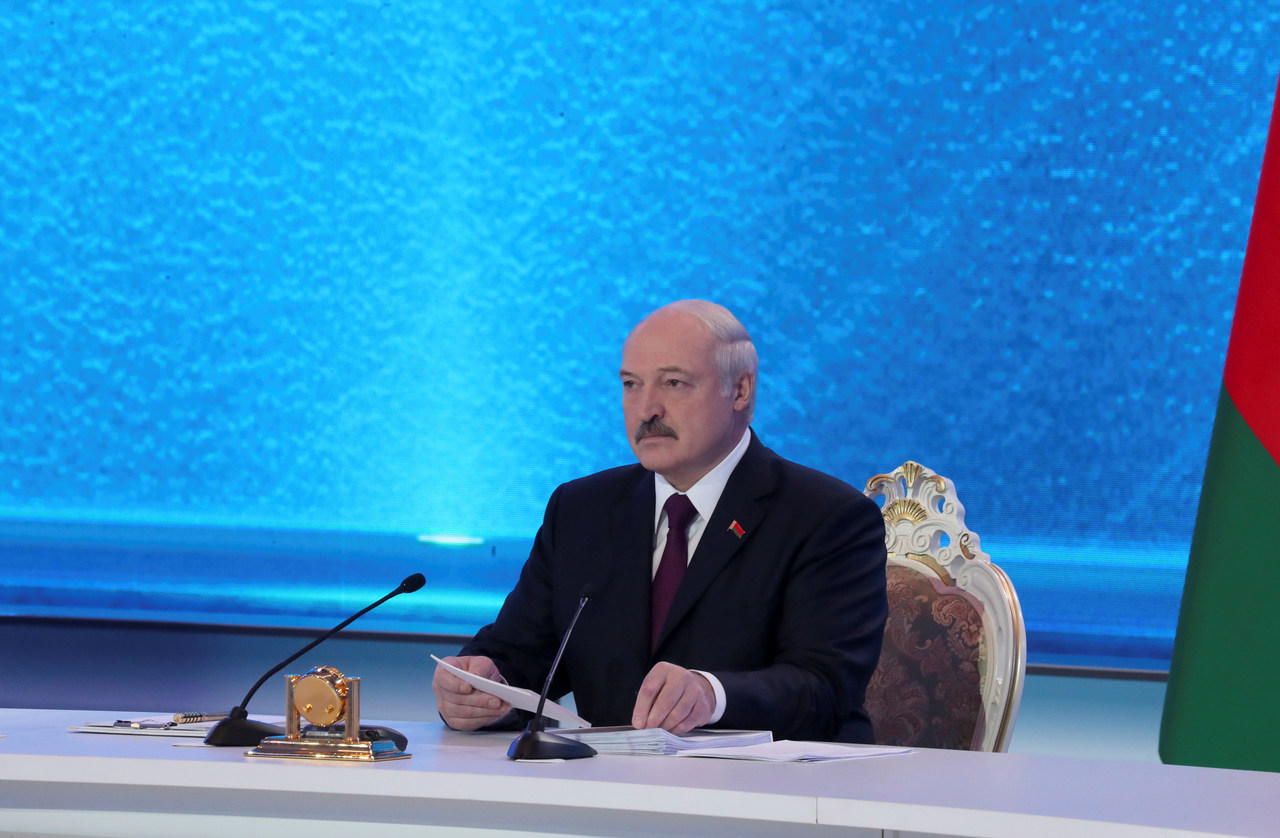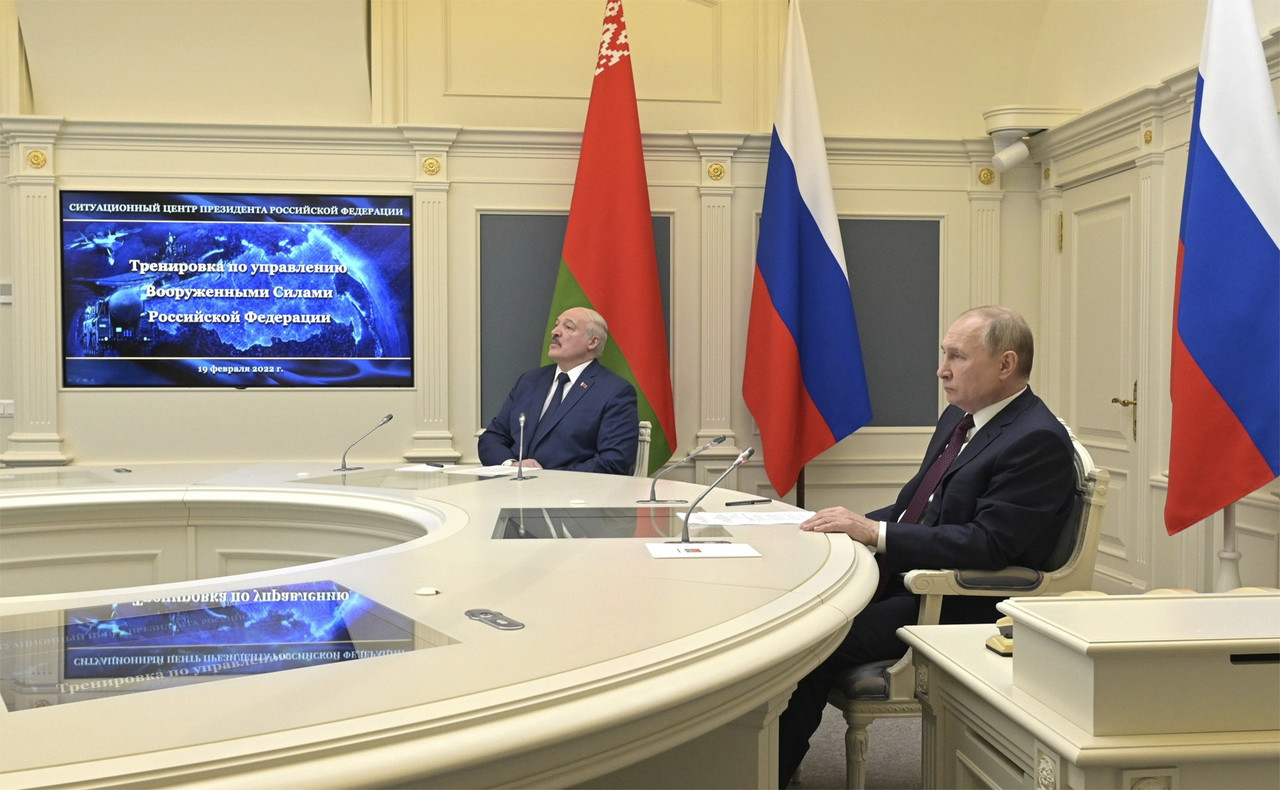Lukashenka Addresses Belarusian Nation and Parliament
On 31 March, Alexander Lukashenka delivered his usual address to the nation and parliament and this time focused on purported threats to Belarusian independence and justified the decision to deploy Russian nuclear weapons on Belarusian territory. Lukashenka repeated Russia’s propaganda about the war in Ukraine and pointed to an alleged threat from Poland and NATO. In response to the ongoing militarisation of Belarus, NATO should strengthen its deterrence and defence capabilities.
 POOL / Reuters / Forum
POOL / Reuters / Forum
What was the purpose and content of the address?
Lukashenka presented the current and future activities of the Belarusian authorities as aimed at strengthening the independence of Belarus. The most important of these, he pointed out, was the deployment of Russian tactical nuclear weapons, which is to be the basic guarantor of Belarusian security. The justification for them was an element of persuading the Belarusian public to accept them, as it had previously opposed such a move (according to a 2022 survey by Chatham House, 76-80% of Belarusians polled were against the deployment of Russian nuclear weapons in Belarus). It was also another attempt to intimidate Western countries with nuclear escalation in the event of further support for Ukraine fighting the Russian aggression. Lukashenka’s goal also was to increase social consolidation in the face of the threats he said are posed by Western countries (especially Poland and the U.S.) and to show their policy as hostile towards Belarus. Lukashenka also presented the most important threats to Belarusian sovereignty, citing the country’s security as paramount.
What threats did Lukashenka point to?
During his speech, Lukashenka repeatedly criticised NATO, the U.S., and Poland. He accused Poland of militarisation, which, in his opinion, is building towards an attack on Belarus. He also claimed an attempt by Western countries to carry out a coup d'état in Belarus after the 2020 presidential election and subsequent efforts by Poland and the U.S. to overthrow the Belarusian authorities. He pointed out that Western countries, through sanctions policy, want to destabilise the Belarusian economy.
In his speech, Lukashenka also repeated Russian propaganda about the alleged revival of Nazism in Ukraine and the hostile intentions of the U.S. and NATO towards Russia. He stressed the need for a multipolar world, which is in line with Russia’s latest concept of foreign policy. Lukashenka’s words demonstrate that Belarusian foreign and security policy has been completely subordinated to Russian interests.
How does Belarus want to counter these threats?
According to Lukashenka, one of the most important ways to “strengthen the independence of the state” is to deepen military integration with Russia. He mentioned the need for further militarisation (the development of the Polonez multiple launch rocket systems, keeping the armed forces in high readiness, joint exercises with Russia). He also pointed to the activities of the Belarusian special services, which will be aimed mainly at Poland and Lithuania, seen as the countries most involved in helping the Belarusian opposition. He announced that Belarus would strive to reject cooperation with the West (including institutions such as the OSCE) that in his view do not bring benefits to their members and instead will turn towards Eurasian organisations.
According to Lukashenka, the Shanghai Cooperation Organisation, the Collective Security Treaty Organisation, and the Eurasian Economic Union will help strengthen Belarusian security, including economic security. Lukashenka also pointed to issues of social security and support for demographic development as crucial for strengthening Belarusian independence.
Does the content of the address indicate the possibility of hostile actions by Belarus towards Poland and NATO?
Criticism of the policy of Poland and other NATO countries, as well as the announcements of “anti-Western” actions by the Belarusian armed forces and services, indicate that in the coming months an increasing number of hostile activities will be undertaken by Belarus. One of them may be the intensification of the border crisis, the aim of which will be to maintain the involvement of Polish, Lithuanian, and Latvian uniformed services in border protection. We can also expect other hybrid activities (cyberattacks, attempts to identify critical infrastructure in countries on the Eastern Flank) undertaken by the Belarusian services alone or in cooperation with the Russians. This will require intensification of counterintelligence activities conducted by NATO countries.
The announcements of further militarisation of Belarus, including the preparation of infrastructure enabling the deployment of Russian nuclear weapons in this country, mean NATO must continue to increase its deterrence and defence capabilities in the nuclear and conventional dimensions. One element of such actions should be maintaining or increasing the allied military presence in the countries of the Eastern Flank.


_s.jpg)

